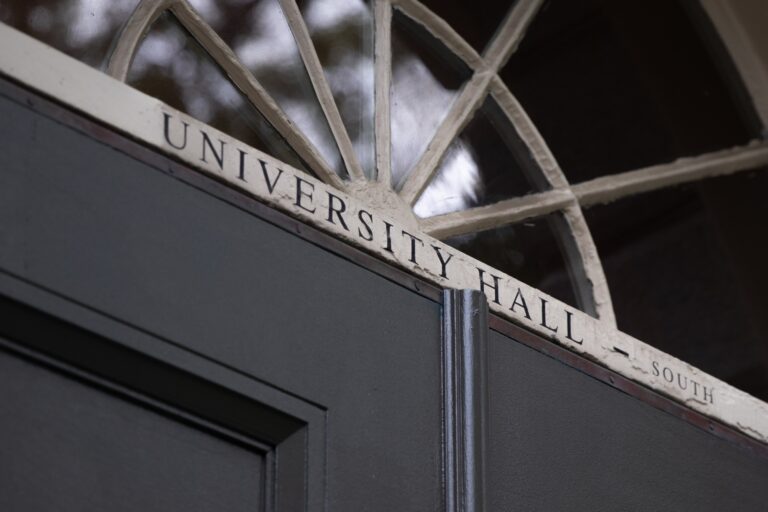Harvard University’s School of Arts and Sciences will no longer require faculty to submit a diversity, inclusion and belonging statement as part of the faculty hiring process, Nina Zipser, dean of faculty affairs and planning, announced in an email Monday morning.
Zipser wrote that she and FAS Dean Hopi E. Hoekstra made the change “in response to feedback from numerous faculty members,” who expressed concern that the current requirements “attempt to collect too narrow information” and could confuse international applicants.
Instead, FAS, the university’s largest department, requires a service statement about applicants’ “efforts to strengthen the academic community” and a teaching and leadership statement about how the applicant will foster “a learning environment where students are encouraged to ask questions and share ideas.”
While FAS previously required all candidates to submit a statement outlining their “commitments to promoting diversity, inclusion and belonging, and their past, present and anticipated future contributions in these areas,” the two new statements will only be required of finalists in the selection process.
The updated requirements apply to FAS’s internal promotion and review procedures and external hires. While some promotion candidates were previously asked to describe their contributions to diversity, inclusion, and belonging in a “service/citizenship” statement, the new language on service statements in the handbook no longer asks candidates to describe their diversity efforts.
Harvard’s move comes amid growing pressure from both within and outside the university to back away from diversity, equity and inclusion efforts. MIT announced a similar decision last month, saying it would stop requiring diversity statements for university-wide positions.
Criticism of Harvard’s DEI efforts came to a head when its former president, Claudine Gay, resigned in January following backlash over her handling of anti-Semitism on campus and allegations of plagiarism in academic papers.
Many of the right-wing political leaders and activists who led the movement to oust Gay, including former Harvard donor Bill A. Ackman (Class of 1988) and Rep. Elise M. Stefanik (D-New York, Class of 2006), have turned their criticism of Gay’s leadership into attacks on DEI.
These criticisms are part of a political backlash against DEI, and diversity statements in particular. At least nine states have passed laws restricting the use of diversity statements in college hiring and promotions starting in 2023, according to a tracker tracked by The Chronicle of Higher Education.
But the push to eliminate the diversity statement isn’t limited to right-wing critics of Gay or Republican-controlled state legislatures: In recent months, several Harvard professors have called on the university to stop using the statement.
Critics argued that the DIB statement forced future teacher candidates to express support for the organization’s views rather than encouraging genuine reflection.
Steven A. Pinker, a psychology professor who co-chairs Harvard University’s Council on Academic Freedom, blasted the diversity rhetoric in a December 2023 Boston Globe op-ed, arguing that it “eliminates from the next generation of scholars anyone who is not a highly conscious ideologue or an accomplished liar.”
In April, CAFH devoted one of its regular Crimson columns, which offer opposing positions on controversial topics, to the issue. Harvard Law School professor Randall L. Kennedy spoke out against the diversity statement, while CAFH co-president and philosophy professor Edward J. “Ned” Hall spoke in favor.
Hall defended diversity statements as a way for job seekers to understand how they would teach in a diverse classroom, but criticized universities’ expectations that job seekers profess a commitment to “equity-based education” as a “severely distorted view” of what such a statement should contain.
Zipser wrote in an email that he and Hoekstra made the change in consultation with the Academic Planning Group, an advisory body made up of FAS’s highest-powered deans. Zipser and Hoekstra also discussed the change with FAS’ diversity officer and sought feedback from two FAS committees: the Appointments and Promotions Committee and the newly convened Classroom Social Compact Committee.
The language from the DIB statement was removed from the appointment and promotion handbook, but Zipser presented the change as a way to balance promoting diversity and inclusion with other priorities.
“This broad perspective recognizes the many ways faculty contribute to strengthening academic communities, including efforts to promote diversity, inclusion, and belonging,” she wrote.
—Staff writer Tilly R. Robinson can be reached at tilly.robinson@thecrimson.com. Follow her on X. Tilly Robin.
—Staff writer Neil H. Shah can be reached at neil.shah@thecrimson.com. Follow him on X. translation:.

